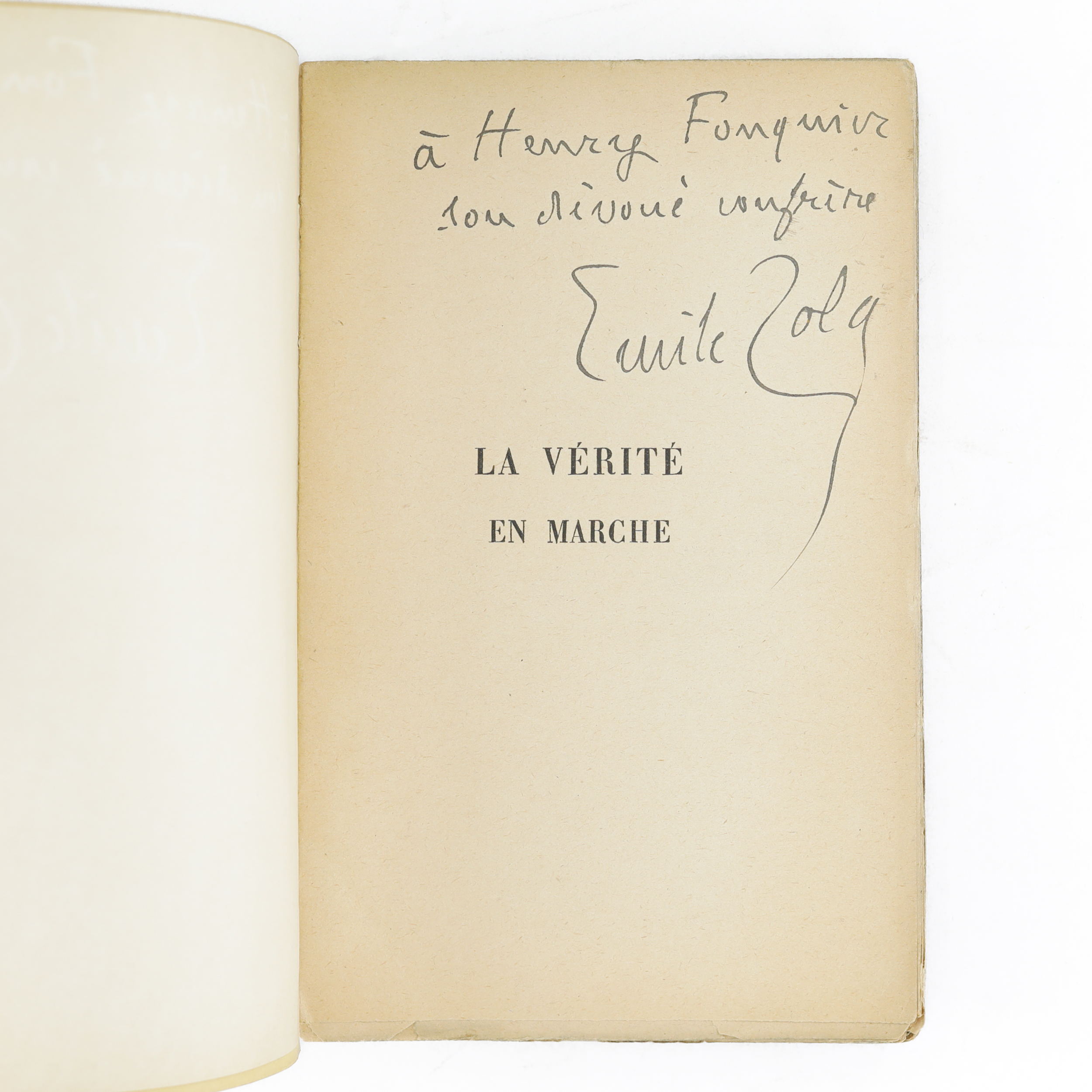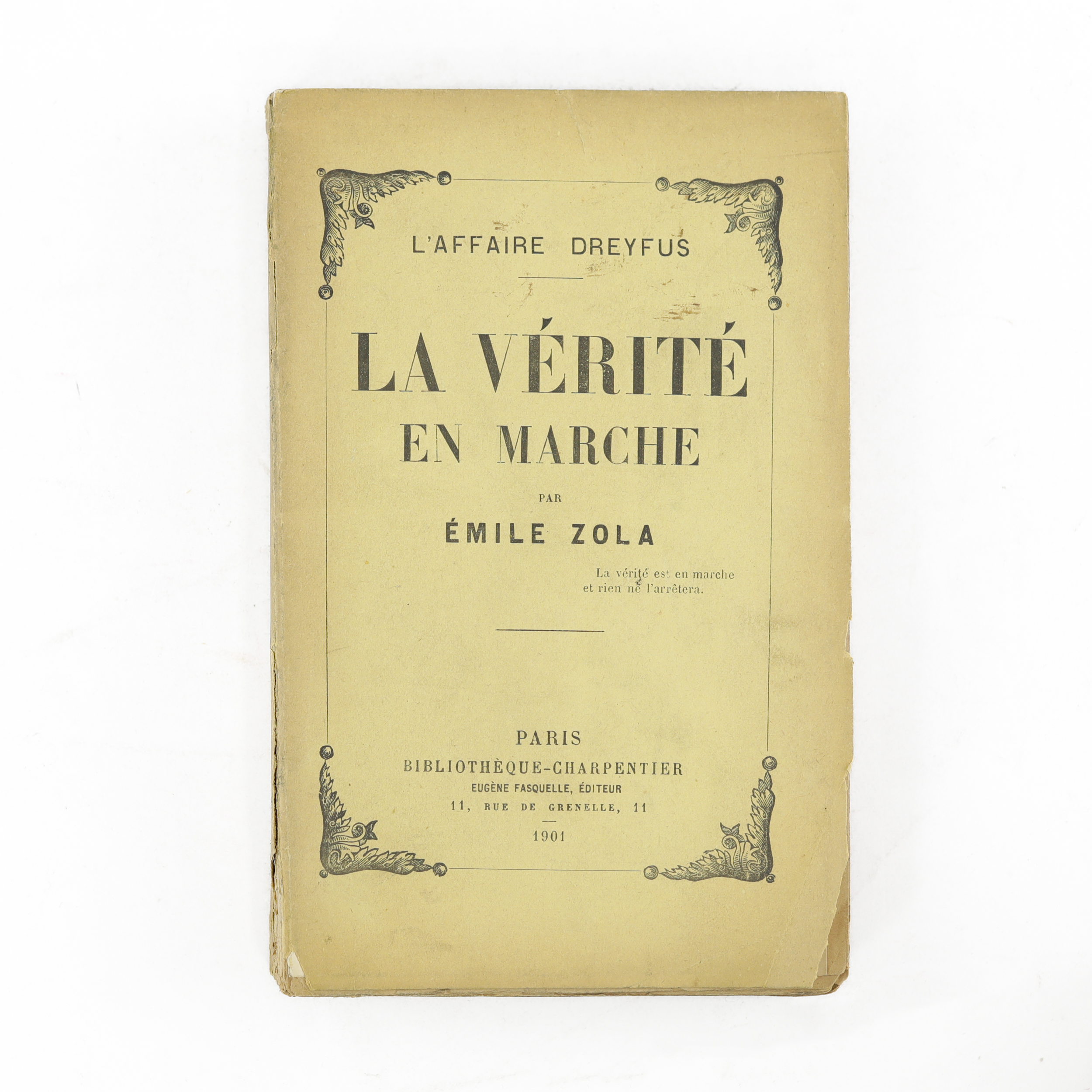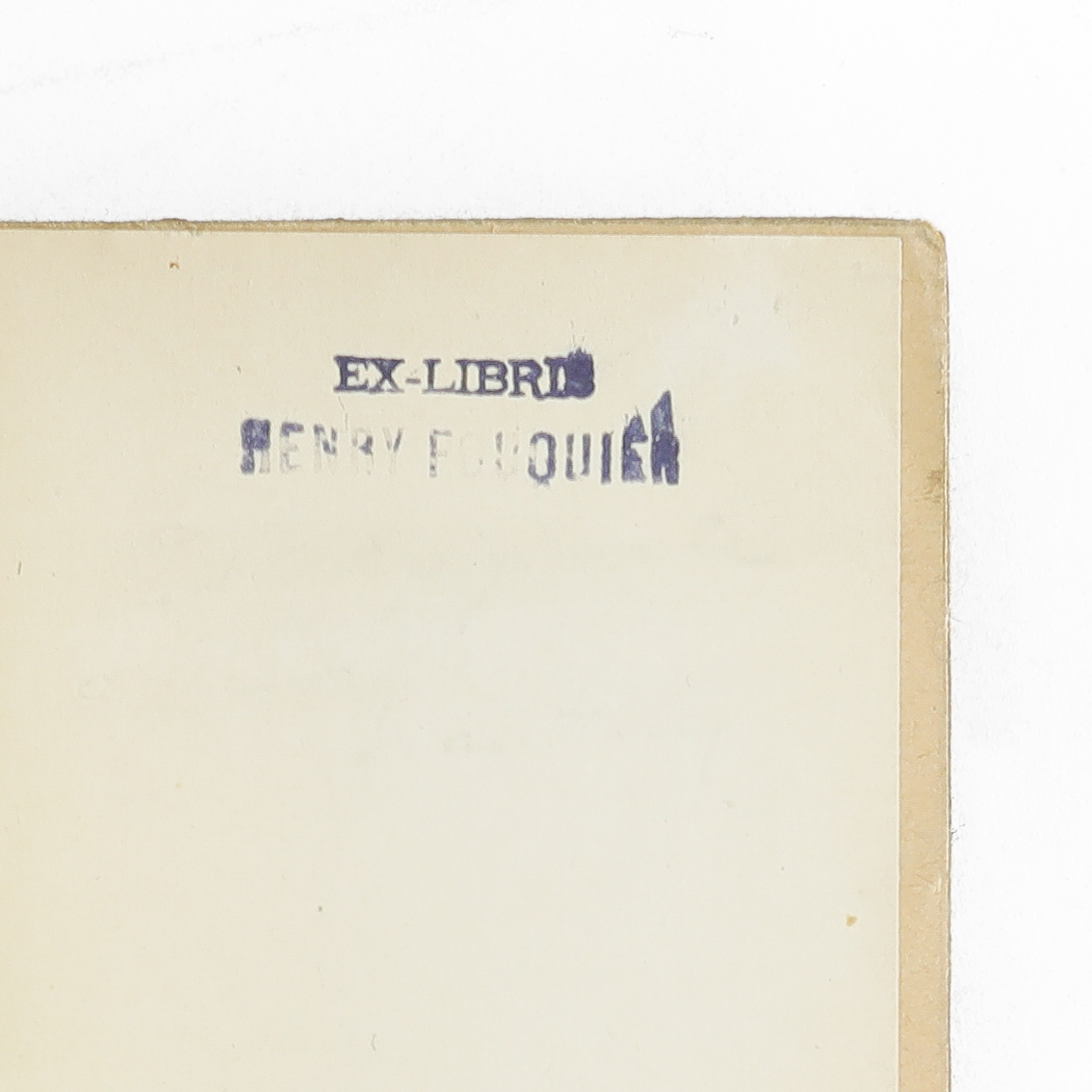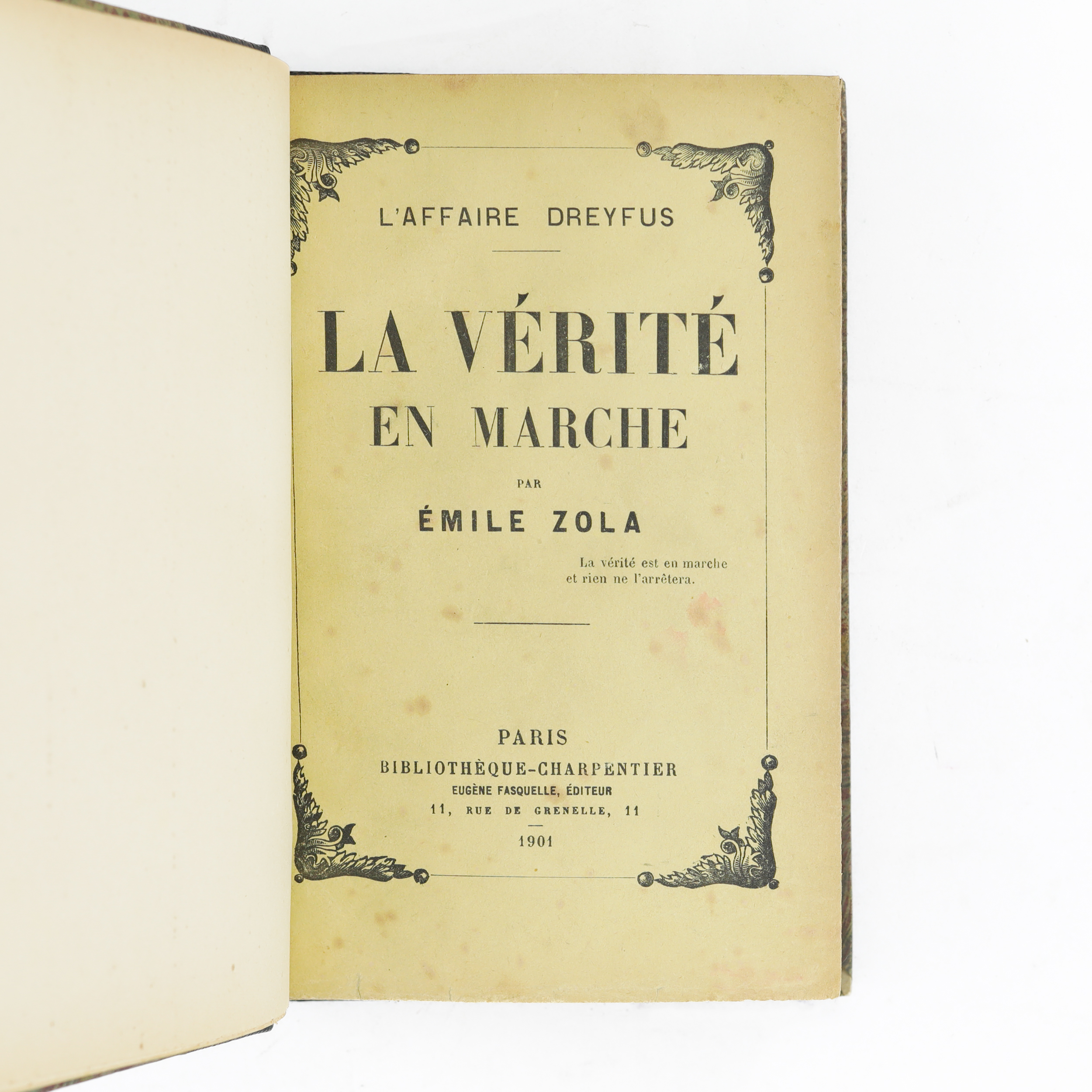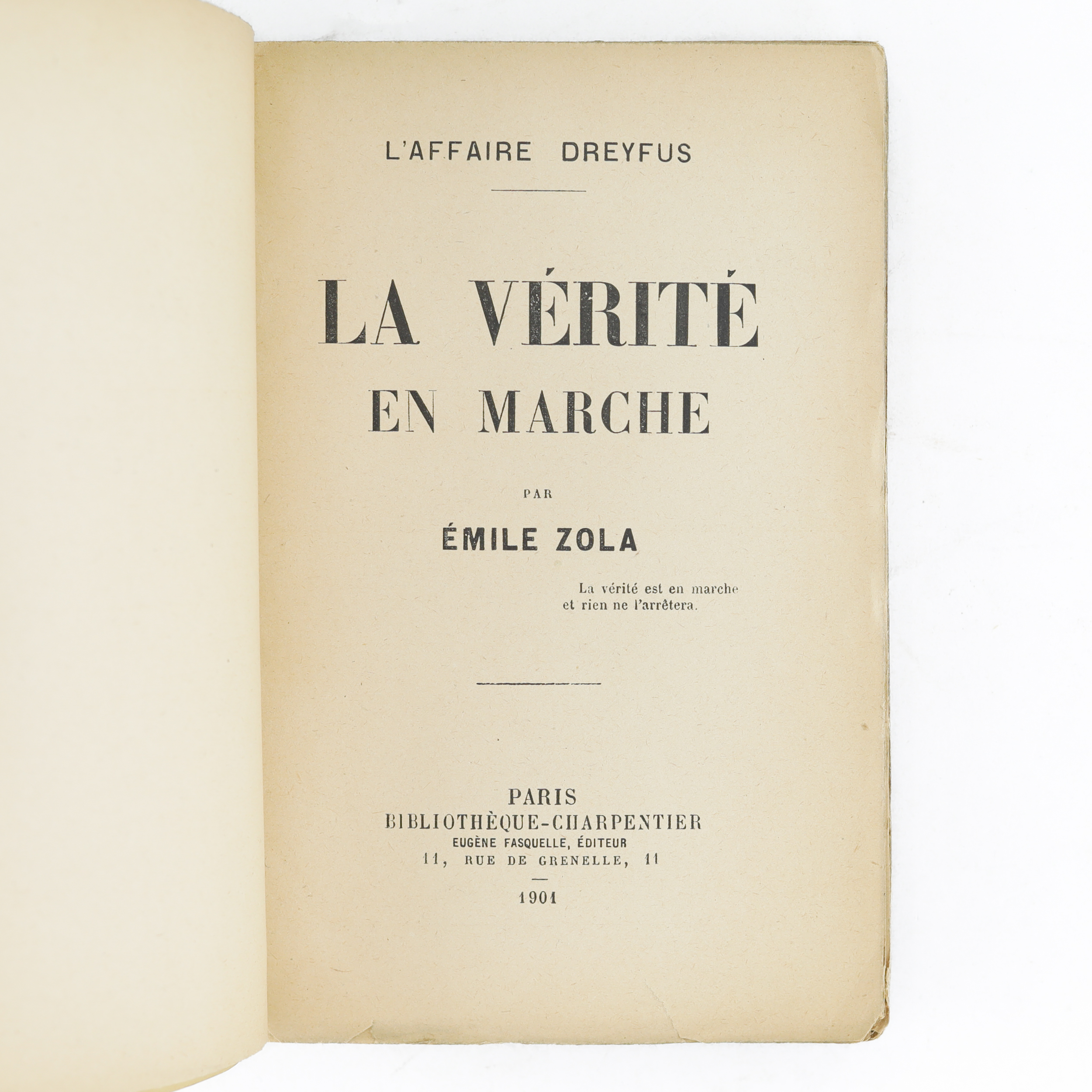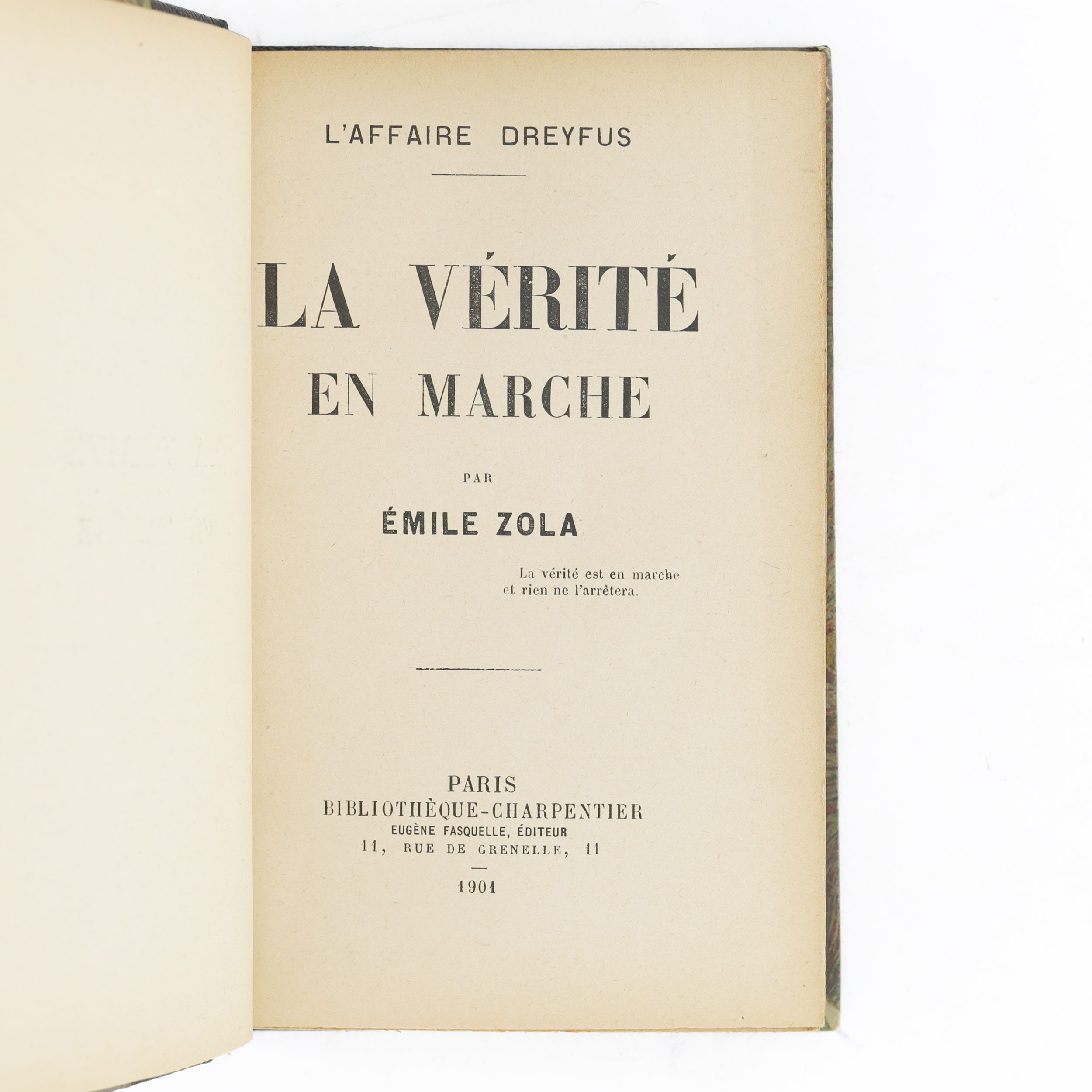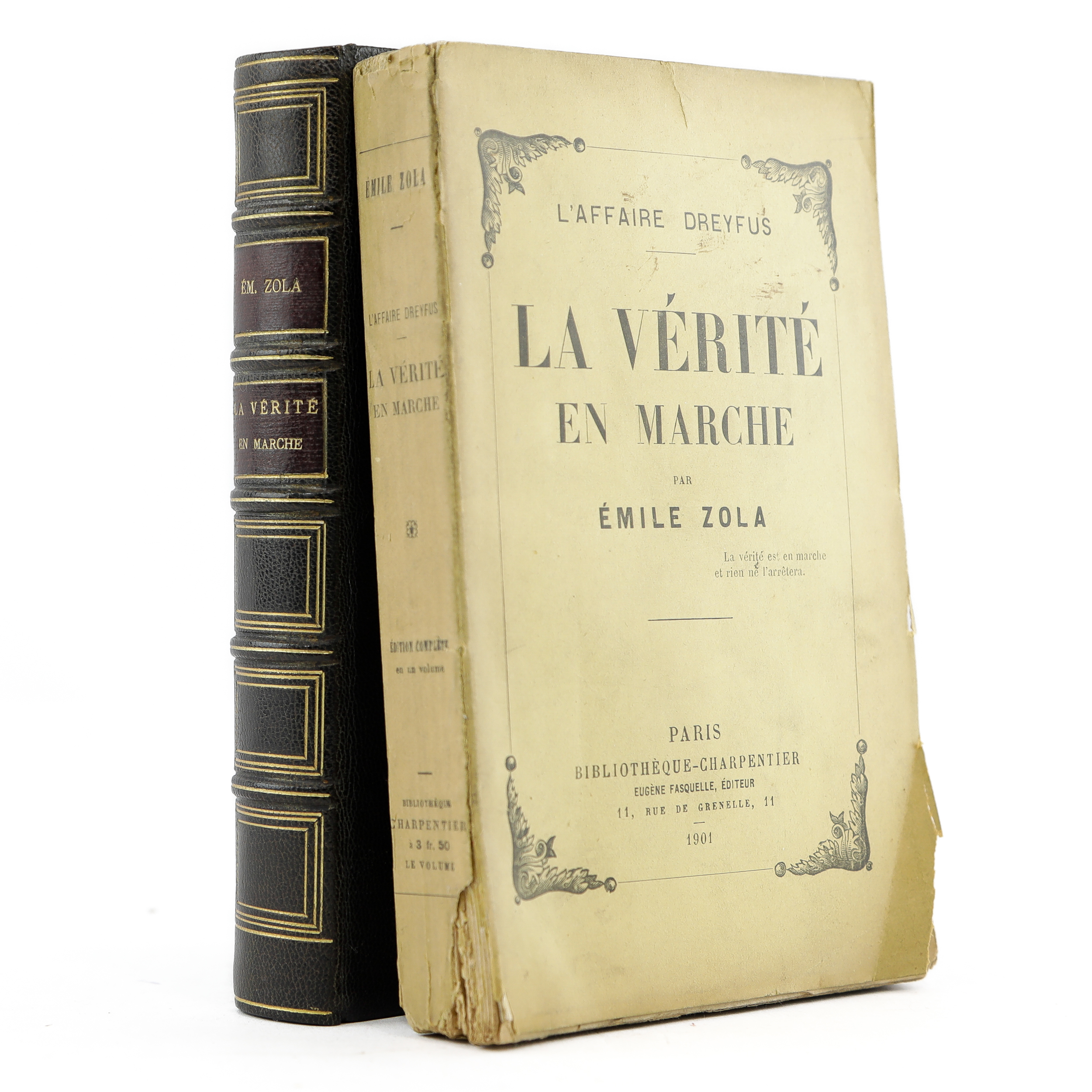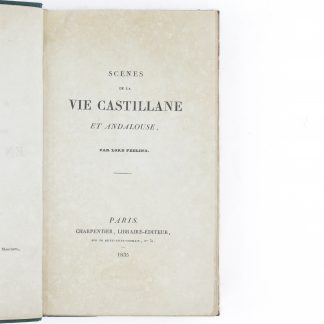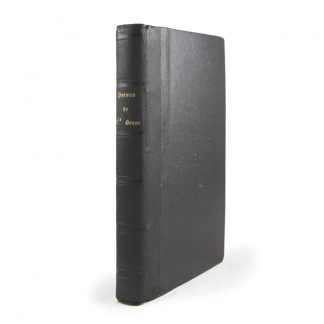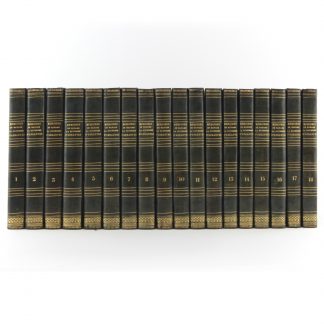Description
FIRST EDITION of this collection of articles on the Dreyfus affair, in which the famous "J'accuse" appeared in volume for the first time.
AUTOGRAPH SIGNED LETTER TO THE JOURNALIST HENRY FOUQUIER :
To Henry Fouquier
his devoted colleague
Emile Zola
With "ex-libris Henry Fouquier" stamp.
Sometimes a harsh critic, he published a detailed analysis of the inconsistencies in Pot-Bouille to which Zola would reply point by point-- Henry Fouquier never shied away from admiring Zola's work: in 1887, in Gil Blas gentlemen of the Académie française to suggest that they offer an armchair to the author of Rougon-Macquart. The two men engaged in a lengthy correspondence, exchanging articles on the subject of theatre and naturalist developments in science and the arts.
As early as 1894, Henry Fouquier spoke out on the Dreyfus Affair in L'Écho de Paris under the pseudonyms "Nestor" and "Colomba". Without questioning Dreyfus's guilt, he was among the first to condemn the anti-Semitic remarks of his colleagues, arguing that Dreyfus's Judaism had little to do with his alleged treason ("Patrie", 8 November 1894).
Zola himself approached the Dreyfus affair through the anti-Semitic question, publishing an article in 1896 entitled "Pour le juifs" ("For the Jews"). He did not really take a stance in support of Dreyfus's innocence until the end of 1897: the final sentence of his article of 25 November, "The truth is on the march and nothing will stop it"This became the leitmotiv of the Dreyfusards.
At the end of a 4-year campaign, Zola collected his militant articles in this volume and withdrew from the country's affairs to devote himself entirely to his literary work.
We enclose a second copy of the ORIGINAL EDITION bound at the beginning of the 20th century, without dispatch.
Spine missing, small stain on upper board, crease and small paper loss on upper board. Paper browned.

